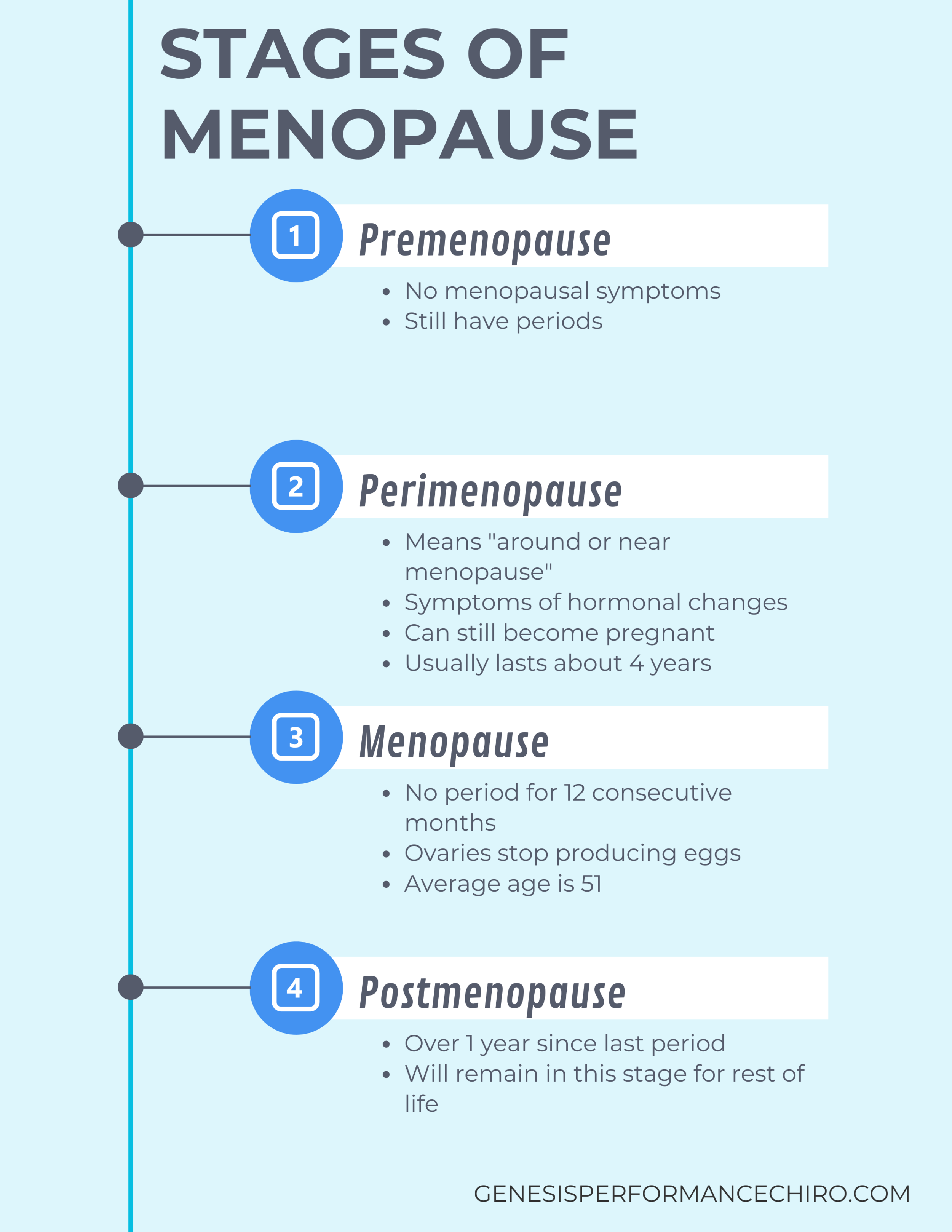Understanding the Signs and Stages of Menopause in Women
Introduction
Menopause is a natural phase in a woman’s life that signifies the end of her reproductive years. It’s a significant biological event that comes with its set of unique signs and stages. In this article, we’ll delve into the intricate details of menopause, from its initial signs to the different stages that women go through during this transition. By the end of this journey, you’ll have a comprehensive understanding of what to expect and how to navigate this transformative period.

What is Menopause?
Before we dive into the signs and stages, let’s establish a clear understanding of what menopause is. Menopause is a normal biological process that occurs when a woman’s ovaries cease producing eggs, and her menstrual cycles come to an end. This typically happens between the ages of 45 and 55 but can vary from person to person.
Early Signs of Menopause

The journey through menopause often begins with subtle signs, which may start years before actual menopause. Recognizing these early indicators is crucial in understanding your body’s changes and preparing for the transition.
- Irregular Periods: One of the initial signs is irregular menstrual cycles. Your periods may become shorter or longer, heavier or lighter.
- Hot Flashes: Hot flashes are sudden, intense feelings of warmth that can leave you sweaty and uncomfortable. They often occur during the day and can disrupt your daily routine.
- Mood Swings: Hormonal fluctuations can lead to mood swings and emotional changes. You may experience increased irritability or sadness.
The Perimenopausal Phase
Perimenopause is the transitional phase leading up to menopause. It’s characterized by a gradual decline in estrogen levels and can last for several years. During this phase, women often experience:
- Vaginal Changes: Dryness and discomfort in the vaginal area are common during perimenopause. It can lead to pain during intercourse.
- Sleep Disturbances: Insomnia or disrupted sleep patterns can be frustrating during this phase, contributing to fatigue.
- Decreased Fertility: Fertility declines significantly during perimenopause, making it challenging to conceive.
The Menopausal Milestone
- Cessation of Menstruation: Menopause is officially reached when you have not had a menstrual period for 12 consecutive months. This marks the end of your reproductive years.
Postmenopause
After menopause, your body continues to adapt to lower estrogen levels. Understanding postmenopause is essential for long-term health.
- Bone Health: Postmenopausal women are at a higher risk of osteoporosis, a condition that weakens bones. Maintaining bone health becomes crucial.
- Heart Health: Changes in hormone levels can affect heart health. It’s important to focus on a heart-healthy lifestyle.
- Continued Hot Flashes: While hot flashes may lessen over time, some women continue to experience them in postmenopause.
Coping with Menopause
:max_bytes(150000):strip_icc()/coping-with-menopausal-symptoms-2322672-v1-79d2b661039245bfbfec9f79c78d0fb1.jpg)
Understanding the signs and stages of menopause is the first step. Coping with this transition is equally important. Here are some tips to navigate this journey:
- Seek Support: Share your experiences with friends, family, or support groups. Emotional support can be invaluable.
- Healthy Lifestyle: Maintain a balanced diet, engage in regular exercise, and prioritize sleep to manage symptoms effectively.
- Consult a Healthcare Professional: If you’re struggling with severe symptoms, consider discussing treatment options with a healthcare provider.
Read more about The PCOS Belly: Causes, Solutions, and Body Image
Conclusion
Menopause is a natural and transformative phase in a woman’s life. By recognizing the signs and understanding the stages, you can navigate this journey with confidence and grace. Remember, menopause is a unique experience for each woman, and seeking support and information is key to embracing this new chapter.
FAQs
1. When does menopause typically begin?
Menopause usually starts between the ages of 45 and 55, but it can vary among individuals.
2. Are hot flashes a common symptom of menopause?
Yes, hot flashes are a common and often noticeable symptom of menopause.
3. How long does perimenopause last?
Perimenopause can last for several years, with symptoms gradually increasing in intensity.
4. Can menopause affect bone health?
Yes, postmenopausal women are at higher risk of osteoporosis, so maintaining bone health is crucial.
5. Is hormone replacement therapy (HRT) a recommended treatment for menopause symptoms?
HRT may be recommended for some women to manage severe menopause symptoms, but it’s essential to consult a healthcare professional for personalized advice.
This article provides a comprehensive guide to understanding menopause, its signs, stages, and ways to navigate this transformative phase in a woman’s life.











 Viesearch - The Human-curated Search Engine
Viesearch - The Human-curated Search Engine
